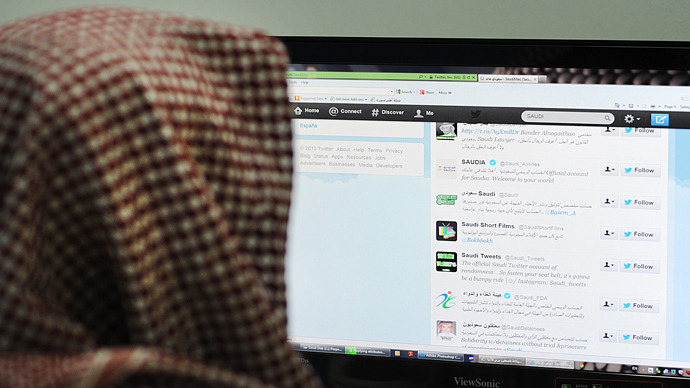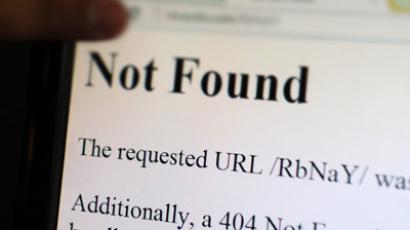Social media crackdown: Saudi Arabia may spy on Twitter users

The Saudi Arabian communications regulator plans to link national Twitter bloggers to personal social media user IDs, local media has reported. There are no technical or legal restrictions to the move, but Twitter's official approval is needed.
The Saudi Arabian Communications and Information Technology Commission (CITC) studies ways to uncover social media users' real identities, according to a Friday report in daily newspaper Arab News Country’s Twitter microbloggers are top-priority candidates to get tokenized.
This could easily be accomplished by monitoring users who access Twitter from mobile phones, by requiring them to register an ID when they add money to their phone accounts.
“The linking of Twitter registration inside the Kingdom with the ID number of a user could be implemented if Saudi Arabia seriously wants it,” Saudi telecommunication technology expert Waleed Al-Khalil told the London-based Asharq Al-Awsat Arabic international newspaper. However, Al-Khalil stressed that such measures cannot be introduced without a general agreement between the CITC and Twitter's administration.
This is not the first time the country’s authorities have announced plans to place citizens’ Internet activities under governmental supervision.
The CITC is reportedly in talks to monitor communications on Skype, Whatsapp, and Viber. If no deal is reached, Riyadh has threatened to block the services altogether, according to Al Arabiya.
The agency may impose sanctions under the authority of the Saudi Arabian government, and violations of CITC regulations are punishable in criminal court.
“For instance, CITC recently canceled free international roaming service offered by some companies without its permission by strictly enforcing penal measures,” Al-Khalil said, adding that he fully supports the idea of government supervision of Twitter users.
Riyadh's concerns over ‘Twitter power’ are not groundless: The Arab Spring uprisings showed how social networks – especially Twitter – could be used to successfully organize young opposition activists to protest against ruling regimes.
The number of Saudi Arabian Twitter users is booming. Between 2011 and 2012, the number of Twitter users in the Kingdom grew by 3,000 percent, Al-Arabiya estimated. Saudi Arabian Twitter users post an average of 50 million messages monthly, most of them in Arabic.
A week ago, Saudi Arabia's top religious cleric Grand Mufti Sheik Abdul-Aziz Al-Sheik publicly railed against Twitter, calling the social media website “a council of clowns.” Twitter is a place where people “unleash unjust, incorrect and wrong tweets,” Sheik Abdul-Aziz Al-Sheik said in a speech to other Saudi clerics.
But Riyadh's concerns over Twitter are likely exaggerated, as two of the most influential Twitter users in Saudi Arabia are Muslim preachers, not opposition activists. Sheikh Mohamad al-Arefe has more than 4.3 million worldwide followers, while Sheikh Ayed al-Qarnee has over 2.8 million – sizable followings in a nation of 25 million people.
Twitter's administration will have to confront the issue soon, as the Saudi Arabian market is extremely attractive to the corporation. In July 2012, Twitter Executive Director Dick Costolo acknowledged that Twitter is the sixth most-browsed website in Saudi Arabia, and that the number of Twitter users is rapidly growing.
Human rights groups have repeatedly criticized Saudi Arabia for
its ultraconservative religious law and limited personal
freedoms.














